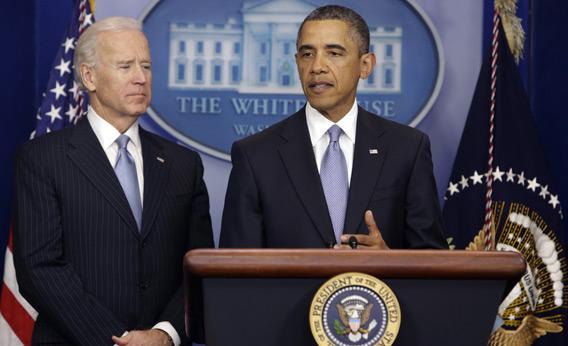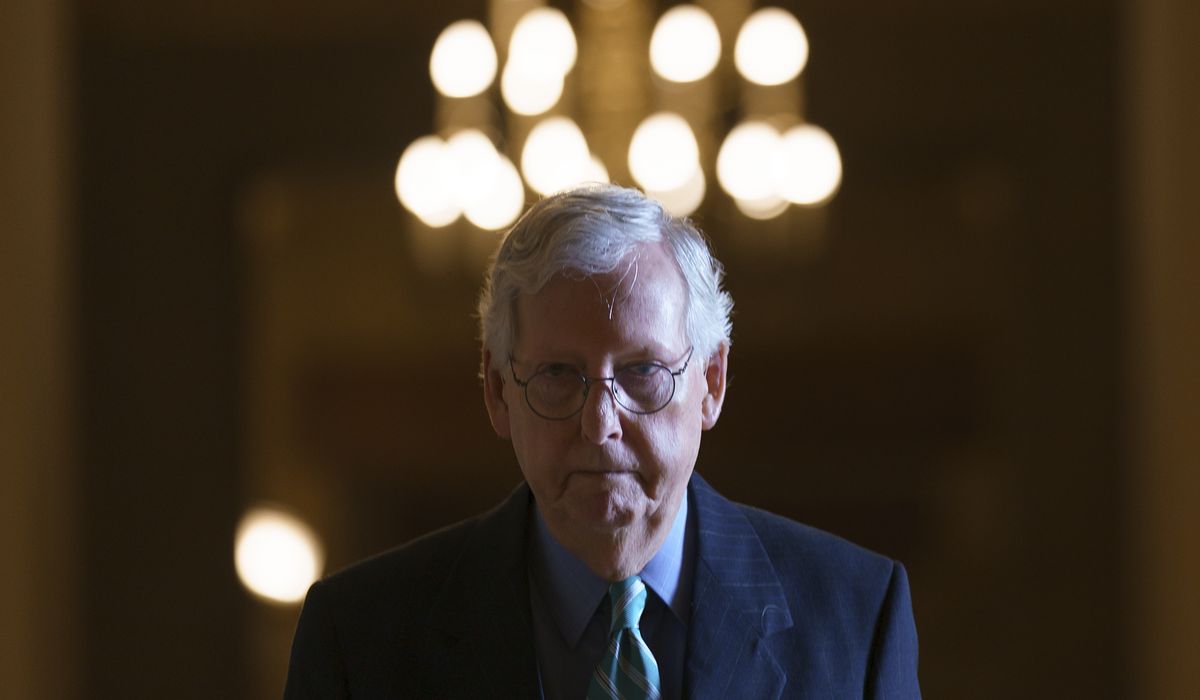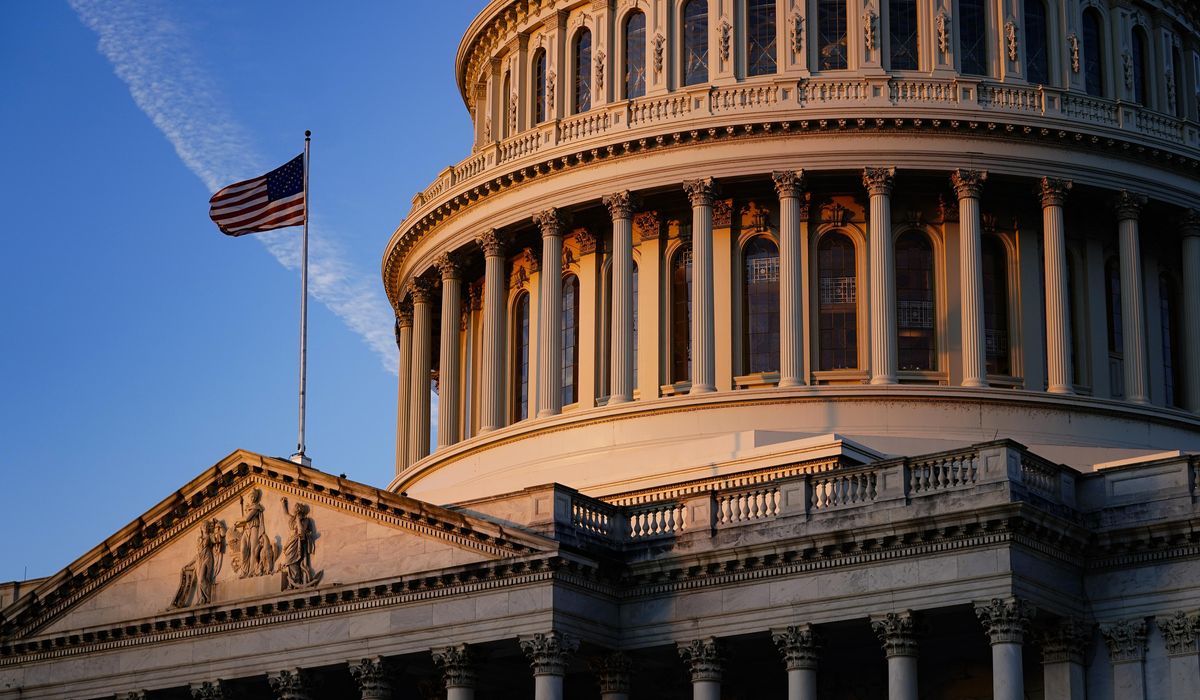Good question. Democrats are always fighting republicans who oppose big government pork spending, and fishing for alternatives to constitutionally prescribed processes has been tried by democrats before.
This is what enterprising leftists said about Obama in 2013:

 slate.com
slate.com
With the fiscal cliff behind us, we now must look forward to yet another budgetary battle—over the debt ceiling, in a repeat of summer 2011. Is there a way out of the endless stalemate between President Obama and Republicans in Congress? Yes, but it requires the president to assert himself more aggressively than he has so far.
The debt standoff is more ominous than the fiscal cliff because it doesn’t reflect a legitimate dispute over public policy. While reasonable people can disagree about the right level of taxation and spending, no one believes that the United States should default on its debt, not even the most ardent Tea Partiers. So holding the debt ceiling hostage is pure brinkmanship—akin to threatening to set off a nuclear bomb in Manhattan if the president fails to agree to spending cuts.
ADVERTISEMENT
House Republicans would probably argue that the main effect of maintaining the debt ceiling would be to force President Obama to cut spending while using tax revenues to pay interest on the debt. But cutting government programs to the degree necessary would also create a crisis— most people and institutions won’t want to do business with the government, or work for it, because they won’t trust it to do what it promises. This is a mess and a bad way to run a country. So what can be done?
One argument that has received some attention rests on an obscure provision in the 14th Amendment of the Constitution. It says that “The validity of the public debt of the United States … shall not be questioned.” Some commentators, like former President Clinton, argue that this clause authorizes the president to borrow money to meet existing obligations. But the provision does not mention the president or give him any authority. And in Article I, the Constitution gives the authority to borrow money to Congress. The 14th Amendment states an aspiration or goal, which would not normally trump a specific allocation of constitutional powers. The argument also fails on its own terms because the debt ceiling does not force the president to default on the public debt; he can avoid default by spending less.
Two law professors, Neil Buchanan and Michael Dorf, have argued that the president is actually constitutionally required to violate the debt ceiling rather than cut spending. To respect Congress’ will, he should follow its orders to spend rather than follow its orders not to borrow—the idea is that the spending power is somehow constitutionally fundamental to what Congress does, while the borrowing power is not. I say “somehow” because Buchanan and Dorf do not explain convincingly why that would be so.
This is what big-spending, constitution-avoiding democrats are saying could be done to bypass republican objections to reckless spending:

 www.vox.com
www.vox.com
But any administration, if it were truly faced with such a calamity, would not actually be helpless. There are at least four different ways a president could nullify the debt ceiling without Congress.
None of these are free from risk, and all would likely spark considerable litigation. That litigation could in turn cause market turmoil as market actors debate the value of US debt issued under these conditions. But all would be preferable to defaulting on US debt.
This is what enterprising leftists said about Obama in 2013:

The President Has the Power To Raise the Debt Ceiling on His Own
With the fiscal cliff behind us, we now must look forward to yet another budgetary battle—over the debt ceiling, in a repeat of summer 2011. Is there a...
With the fiscal cliff behind us, we now must look forward to yet another budgetary battle—over the debt ceiling, in a repeat of summer 2011. Is there a way out of the endless stalemate between President Obama and Republicans in Congress? Yes, but it requires the president to assert himself more aggressively than he has so far.
The debt standoff is more ominous than the fiscal cliff because it doesn’t reflect a legitimate dispute over public policy. While reasonable people can disagree about the right level of taxation and spending, no one believes that the United States should default on its debt, not even the most ardent Tea Partiers. So holding the debt ceiling hostage is pure brinkmanship—akin to threatening to set off a nuclear bomb in Manhattan if the president fails to agree to spending cuts.
ADVERTISEMENT
House Republicans would probably argue that the main effect of maintaining the debt ceiling would be to force President Obama to cut spending while using tax revenues to pay interest on the debt. But cutting government programs to the degree necessary would also create a crisis— most people and institutions won’t want to do business with the government, or work for it, because they won’t trust it to do what it promises. This is a mess and a bad way to run a country. So what can be done?
One argument that has received some attention rests on an obscure provision in the 14th Amendment of the Constitution. It says that “The validity of the public debt of the United States … shall not be questioned.” Some commentators, like former President Clinton, argue that this clause authorizes the president to borrow money to meet existing obligations. But the provision does not mention the president or give him any authority. And in Article I, the Constitution gives the authority to borrow money to Congress. The 14th Amendment states an aspiration or goal, which would not normally trump a specific allocation of constitutional powers. The argument also fails on its own terms because the debt ceiling does not force the president to default on the public debt; he can avoid default by spending less.
Two law professors, Neil Buchanan and Michael Dorf, have argued that the president is actually constitutionally required to violate the debt ceiling rather than cut spending. To respect Congress’ will, he should follow its orders to spend rather than follow its orders not to borrow—the idea is that the spending power is somehow constitutionally fundamental to what Congress does, while the borrowing power is not. I say “somehow” because Buchanan and Dorf do not explain convincingly why that would be so.
This is what big-spending, constitution-avoiding democrats are saying could be done to bypass republican objections to reckless spending:

How Joe Biden could end the debt ceiling — all by himself
Minting the trillion-dollar coin, the 14th Amendment, and other ways to finally kill the debt ceiling.
But any administration, if it were truly faced with such a calamity, would not actually be helpless. There are at least four different ways a president could nullify the debt ceiling without Congress.
None of these are free from risk, and all would likely spark considerable litigation. That litigation could in turn cause market turmoil as market actors debate the value of US debt issued under these conditions. But all would be preferable to defaulting on US debt.




